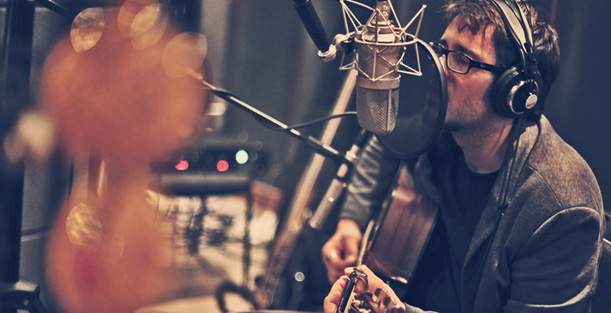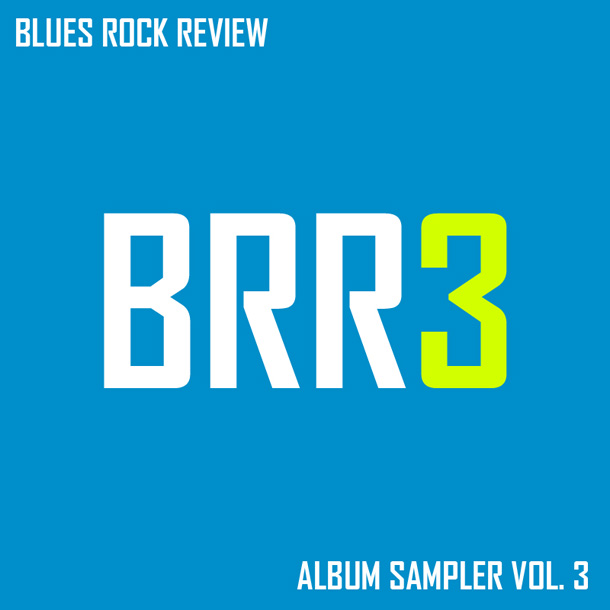Marcel Ziul Interview
Marcel Ziul is one of Brazil’s finest blues rock guitar players. The 34-year-old recently released his latest album, In A Minute, and finished in the Top 10 of the voting in the 2013 Play Crossroads Contest. We caught up with Ziul to discuss In A Minute, blues rock in Brazil, touring the US, the challenges today’s independent musicians face, and more.
You seem to have a wide array of influences. Who are the biggest influences on your music?
Because of having been brought up in different places, (I’d lived in 3 countries and moved between cities 10 times by the time I was 18), I listened to a lot of different music. The country in which I spent the longest amount of time as a child was the US, and my parents listened to a lot of adult radio and oldies stations when I was growing up in the ’80s and early ’90s in New York, and later in New Jersey. What got me into music and interested in songwriting, singing, and, eventually into playing guitar and blues and rock, was mainly the Motown stuff they liked. My parents used to play Stevie Wonder and Michael Jackson records, mostly. My dad is also a big Beatles fan, so I also remember listening to a lot of Beatles as a child.
I moved to Bogotá, Colombia as a teenager and went to an English-language school there. The vice-principal was an Irish guy who played the guitar and had a blues band with other teachers. They’d lend lend us their gear and let us rehearse in the school music room on Saturday mornings. His group played the blues and was appropriately called “The Black Cat Bone.” I got into the genre around that time; the first blues album I got was BB King’s “Kansas City, 1972.”
But it was when I got my first Hendrix album that I really got into learning guitar. I bought “Electric Ladyland” when I was 15 and it was the first time I really had to sit down and ‘digest’ music in order to really appreciate it. Once I’d learned a few Hendrix licks, I started incorporating bluesy songs into my repertoire. Up until then I had been playing covers of what was popular at the time, (mid to late ’90s alternative rock mainly), and classic rock stuff.
You studied violin for many years before picking up the guitar. Has that experience influenced your guitar playing in any way?
It probably did in a way technically. The violin is much harder to deal with; it doesn’t lend itself to a graphical approach; it’s not fretted and you don’t really visualize scales and patterns on it as you do for guitar. Playing the violin is a great exercise for the ear.
Being able to manage a bow is also much harder that picking strings; it definitely helped me deal with rhythmic playing and groove early on.
Knowing a bit of music theory and how to practice was also helpful.
What was the songwriting process like for your new album, In A Minute?
The songs on my new album were all written after I released my Live Studio Sessions DVD in 2010. “Afraid of Loving You,” “Confusion,” “Too Blind to See” and the title track were songs that just came to me – most of the lyrics in those songs just started playing in my head with their approximate melody, and all I had to do was finish them. They were all written over periods through which I was doing studio work on other artist’s records, either as a producer or guitar player, so they probably result from unused musical ideas I had while at a recording session.

Other songs, like “All the Time,” “Learn to Fall” and “Don’t Walk Away” were written around riffs, chorus ideas or rhythmic things I wanted to do, (like the 9/3 time signature for “Learn to Fall”). I sat down and wrote these songs specifically for the album.
“How Long” and “Far Apart” came a couple of weeks before recording and were basically worked out by the band on the spot. I didn’t even have complete lyrics when I went in to track the vocals.
What type of gear did you use on the album?
Over the last few years gear has become a major concern for me. Living in Brazil makes it a bit hard to get the right instruments and amps, not to mention mics, pres and other peripherals. One of the reasons for that is that the music that’s popular in Brazil isn’t associated to rock/blues tones, big sounding drums, etc. It used to be you had to own a piece of gear to even know what it sounded like.

Luis Venturin, the producer of In A Minute, is great friends with me and has been collecting gear for a while now, as have I. We’re really proud of the way the instruments were tracked on the album.
I used Fender Strats, (mainly my half US, half Japanese ’62 reissue with Van Zandt Blues pickups), going through a fuzz-octave, a vibe unit, a wah, two overdrive pedals, a chorus and a delay. From there, I went into a 1963 Fender Tremolux, a heavily modded Deluxe Reverb Reissue, a 1959 Fender Bassman Reissue and a 100W Marshall Plexi. They were all on at the same time in the same room, and were individually mic’d up; the coolest tone came from a ribbon mic on the Tremolux. However, most of the tone came from a Neumann M-150 carefully placed in the middle of the room.

The bass guitars were a ’70s P-Bass and a ’70s Jazz Bass, running into a heavily modified 1959 Bassman Reissue and split into a 1272 Pre.
The drum kit was an assortment of other kits we borrowed from a local collector, comprised of an assortment of vintage Ludwig parts.
I sang mainly into a Shure SM-7 through an API pre and a LA2A compressor.
We tried to keep everything as old school as we could, despite the fact that the studio didn’t offer a tape machine. Aside from all the gear I mentioned, which we personally hauled into the facilities, we brought in a huge variety of pre’s and peripherals.
Which track off In A Minute is your favorite to perform live?
“Too Blind to See” is definitely my favorite one live. It’s just gratifying hearing it really happen on stage because it was so tough to mix I didn’t think we’d ever pull it off. I love its groove and the bass interlude really surprises the audience.
What is the blues rock scene like in Brazil?
Brazil has got a lot of musical talent, and many talented blues and blues rock musicians. Mainstream music, however, has seen a lot of growth in recent years, and most artistic efforts go into ‘Brazilian pop.’
There is a lot of government incentive for more underground music styles, but most of the time, the blues gets lumped together with other genres, such as instrumental music or even bossa nova and other Brazilian music that is not as popular today.
All of this leads to little production of new material by blues musicians, and the few local artists who do manage to maintain a blues or blues-rock career are forced to tour abroad.
You recently finished in the Top 10 of the voting in the 2013 Play Crossroads Contest, which was quite the accomplishment. What goals do you have for your career in the next few years?
I have my fans to thank for that. They really wanted me to share the stage with Clapton and all the greats who are going to play the Crossroads festival. Hopefully I’ll have another shot next year, though.
For now, we are currently putting together an international tour, and have already scheduled a few US dates before the tour actually starts. We have been gearing our efforts to a more international audience and are also planning on doing some recording in Los Angeles pretty soon.
What are the biggest challenges you face as an independent artist?
Ironically, now that the internet has taken on a central role in the way music is discovered and listened to, being independent in today’s music scene is probably as hard as it has ever been.
It used to be that the web was the domain for independents; one of the only true places where you could really get fans to become involved and support you based on merit. New web advertising tools, however, have changed the way several websites work. I feel that self-distributed artists are being overshadowed by mainstream content more and more now.
You also have to pitch yourself constantly, which I find really hard. I started playing professionally in the early 2000s and things were very different from the way they are now. Fan relationships were based on music, and not Tweets, Instagrams and Facebook posts.
It’s an amazing time to be a music fan, though. You could listen to virtually anything you can think of at any time. You can type in lyrics to songs you don’t remember the title to and be reminded of the melody by a video in seconds. This, to me, is an indicator that there is a severe imbalance in the music world.
All in all, I’m optimistic about the future, though. I believe a new, more balanced state for the music business will be achieved soon, and that artists will be more empowered than ever. Despite the challenges, I couldn’t see myself any other way than being independent and having complete control over my music.
Marcel Ziul US Tour Dates
Interview by Pete Francis





Really nice post. I just became aware of your own blog page as well as wished to state that I’ve truly truly adored shopping your blog post posts. At any rate I shall be subscribing on your rss feed we i do hope you publish just as before quickly!